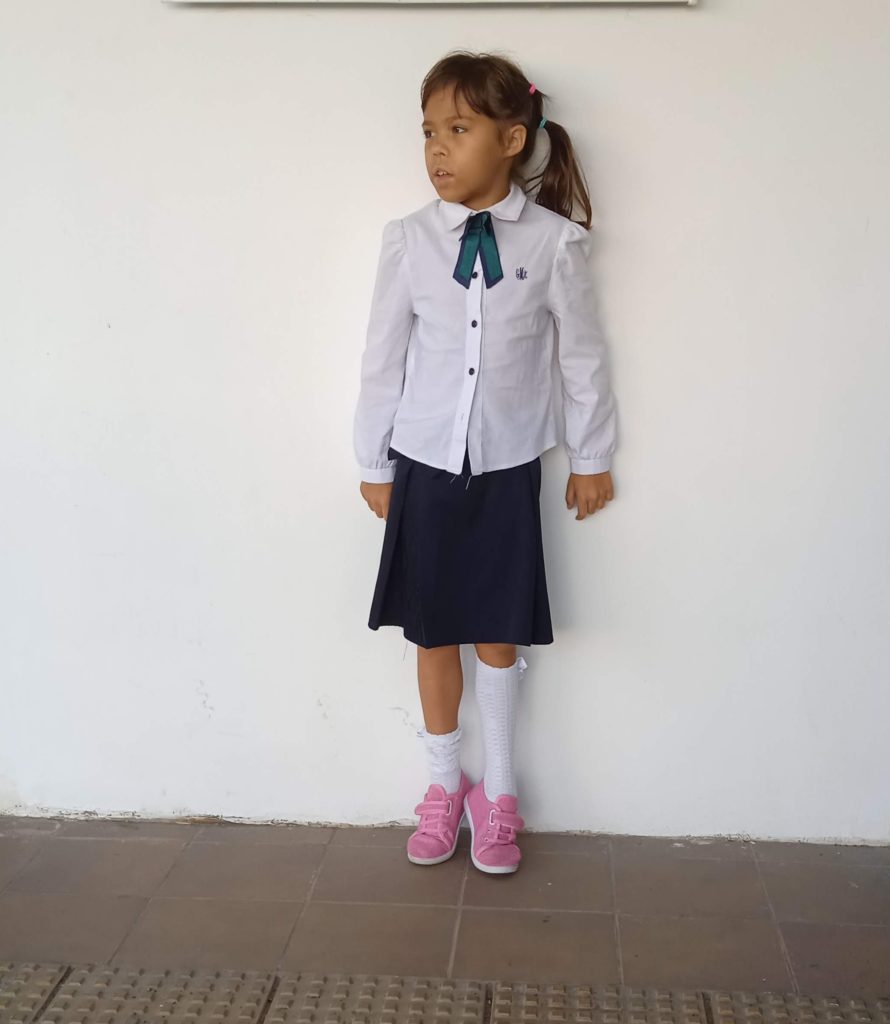Asked to transfer the child to individual training

after school
Today something happened that I have long feared and wrote about it here. I was hinted about transferring Alice to individual training. This is a form of education in which the child comes to school, but is engaged not in the classroom, but one-on-one with the teacher.
I’ll start with the fact that after class today Alice was taken out by our class teacher and tutor. The conversation began with long and drawn-out sighs, after which I was told that Alice could not possibly sit through more than two lessons in a row. In the third lesson, she starts crying. And then the teacher asked me if I had thought about transferring my daughter to individual training. After all, the class teacher is hard with her. Three children study in the first class of a specialized type 8 school and it is difficult to find an approach to one of the three. Forgive me, I haven’t accepted this situation yet, I was afraid of it coming and still wasn’t ready. I may be able to accept it after a while, but for now, my emotions outweigh my reason.
I understand our homeroom teacher’s motives. She is a lady at the age that has passed the retirement age by more than 10 years and, of course, it is already difficult for her to emotionally look for an approach to a child. Yes, my daughter is difficult. Yes, she has autism. Yes, she does not always understand what is wanted from her the first time. And she doesn’t always do what she’s asked to do. But that’s why I didn’t send her to a comprehensive school, but to a specialized one, just the kind where children with similar disabilities study. That’s why I came to school in the spring and asked if they were ready to work with such children. I was assured that they were ready, that it was difficult to frighten or even surprise them. I was told some encouraging stories about how some children started their school career and how they then successfully continued it. Unfortunately, I was not able to meet the first-grade teacher at that time, and I didn’t see her for the first time until the first of September. She is kind, positive, where necessary strict and knows how to get along with children. To my regret, her undoubtedly rich experience does not include successful work with children with autism spectrum disorders. And she no longer wants, or may find it difficult, or may not consider it necessary, to learn new ways to work with such children.
Back in early September, I gave Alice her folder with tasks that We do at home. Just so that you can understand what it can do, how it works, and what you can do with it during the adaptation process. So this folder is still in the package in the corner, we have our own methods, the class teacher told me. I made a “Home” card and asked her to let Alice go home after 2 lessons, at a time when she had not yet started crying and before that show her the card. In order for her to understand at what point she can go home. Now the situation is as follows: Alice is allowed to go home when she starts crying. It is fixed every day. I talked to the head teacher, discussed everything, and agreed that two lessons is still our limit. Then our teacher got sick and a miracle happened. Alice did not cry at school for a week and a half (except for one day). I sat by the school fence and was nervous about why she wasn’t being taken out. And she sat perfectly well for three lessons.
I can’t transfer Alice to another class, there’s only one of them at school. I really hope that we will be able to develop a joint strategy and the adaptation process will be more successful. On the other hand, if the individual training will be a teacher who will find an approach to it, it may be worth thinking about it. About a year ago, I read an article by a psychologist about what school should give a child with disabilities. And then I was very surprised by his main idea that school is primarily an educational activity and only then socialization and so on. And, if the child can’t study in a comprehensive school or in a classroom, then you need to think about other options. Psychologist himself with cerebral palsy, he gave a lot of examples from his life.
Now I do not know what I will do next, butt for Alice’s education in the classroom with other children, or transfer to individual training. In the meantime, I need time to figure out what’s best for her. I wrote on emotions, maybe tomorrow I will cool down and I will be ashamed of these thoughts, but it also happens.

Comments: